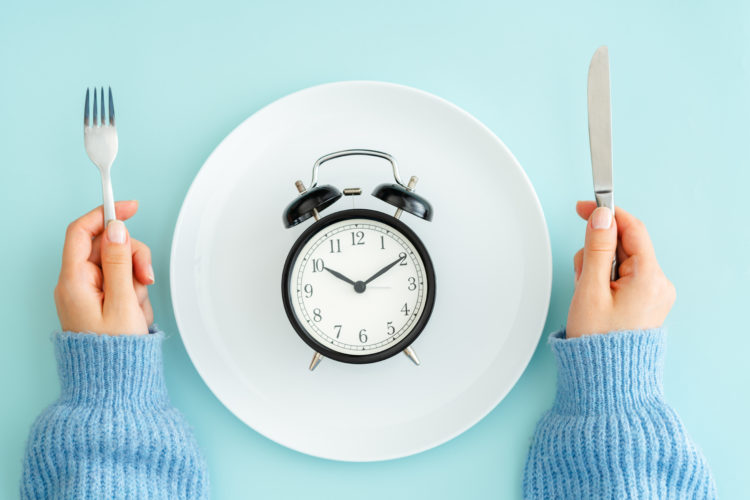
You were doing so well, consistently eating fairly balanced meals, taking care of your mental health along the way — but in a single moment of vulnerability, you binged again.
Now it feels like you’re all the way back to square one and the guilt feels like a thousand pounds. You hear a voice in your brain saying you might as well binge a little more since you’ve already gone this far. Maybe just slip into some baggy clothes to hide the bloating and spend the rest of the day in a gloomy, guilty funk.
You’re not alone. Guilt is a feeling that commonly accompanies binge-eating disorder, but it’s not an emotion you have to be enslaved to.
As difficult as it can be to get back up on your feet after stumbling over a binge, remind yourself that overcoming this guilt is not impossible, and there will come a day where you won’t be stumbling over these things anymore.
Understanding binge-eating guilt
If you pay close enough attention to that voice in your head (specifically, in this instance, the one that’s beating you up after a binge), you’ll realize just how cruel it is. It’s not saying anything helpful or encouraging, but rather, is only criticizing you and bombarding you with “shoulds.”
Since a large amount of diets are composed of what often feels like a bunch of highly restrictive rules, they can lead many people, when they “break a rule,” to spiral into guilt.
In another sense, labeling certain foods “good” and others “bad” (also often called a “junk food”), can result in feelings of guilt or failure after bingeing these less-than-healthy foods.
It might feel hopeless at times, but you absolutely can overcome the guilt that follows bingeing. The following steps will help guide you past this overwhelming feeling of guilt.
1. Before anything, forgive yourself
We’re going to give you some tough love here, okay? What’s done is done. You’ve already binged, it happened, it’s over; dwelling on it, beating yourself up for it, obsessing over the “shoulds” isn’t going to do anything except make you feel worse.
None of us are perfect, and experiencing a setback doesn’t mean you’re a failure. So take a deep breath, give yourself a hug, and remember, tomorrow is a fresh start.
2. Be objectively curious about what happened
When you aren’t so emotionally invested in the episode, allow yourself to reflect on it with a healthy curiosity. Identify any triggers that are vulnerable moments where you were particularly susceptible to bingeing.
Get to know yourself on a deeper level, and this will help you overcome the urge to binge next time it rolls around.
3. Stop trying to compensate or “punish” yourself
A common side effect of feeling guilty after a binge is to do something in an attempt to “cancel” the calories of the binge. The most common two methods of compensation are over-exercising and skipping meals, neither of which is going to make you feel better, or cancel out the binge.
To be honest, the best way you can help your body recover after a binge is to rebalance your nutrition by eating more balanced meals, stay hydrated and be moderately active (think 10 to 30 minutes of exercise a day).
4. Find a way to genuinely relax
It might sound tempting, but rolling up in a blanket and watching movies all day is not going to bring you peace after a binge (that stagnancy can actually make you feel worse).
Whether you want to do some outdoor yoga, go on a walk on a mountain trail or read a book in the sunshine, do something that’s going to get you out of your house and into nature. This will not only give your brain a little reset with the fresh air, but nature has been shown to boost serotonin and promote a more balanced overall sense of well-being; just what you need.
5. Challenge your food stigmas
One of the many reasons people binge is due to having a highly restrictive diet, not allowing themselves to eat certain foods, which then results in a binge of those foods or food in general. Instead, try loosening the reins when it comes to the judgments you have around food.
For example, instead of forbidding yourself from ever buying ice cream because you don’t think you could ever have a tub of ice cream in your house without eating it all in one setting — give yourself permission to buy the ice cream. But instead of having the mentality of “I can only eat two ounces once a week,” allow yourself to enjoy a little bit of it each day.
6. Reach out for professional support
You deserve to experience peace, freedom, even joy, when it comes to food and eating. That’s why we’re here; to help you rebuild your relationship with food in a healthy, positive way.
Our team here at Seeds of Hope is dedicated to providing you with the highest level of care, ensuring that the treatment you receive is fully tailored to you and your individual needs so that your recovery journey is successful.
To learn more about our different customizable treatment plans, access additional resources, or simply speak with a qualified professional, reach out to our team today.
Simply give us a call at 610-644-6464, and we’ll help you from there.


